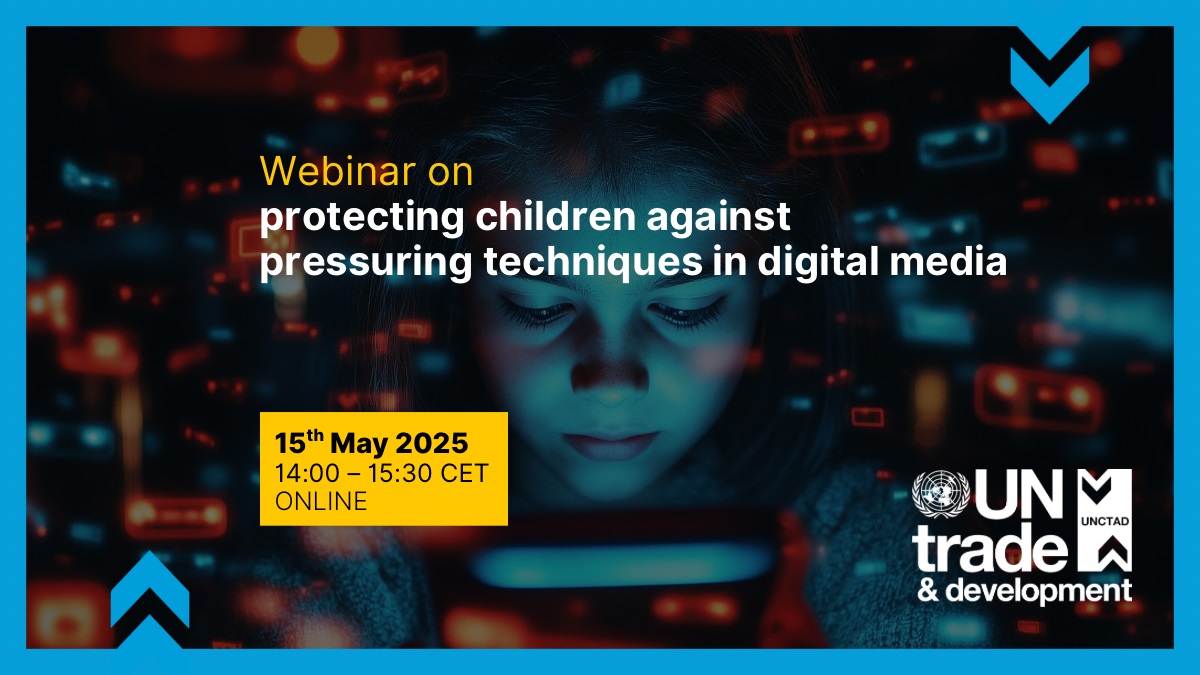Children today are immersed in digital environments — whether gaming, browsing social media, or connecting with peers online. While these platforms offer entertainment and socialization, they are also immersed in commercial content designed to influence behavior and drive purchases.
Increasingly, children are exposed to aggressive and manipulative marketing practices that take advantage of their developmental vulnerabilities and limited digital literacy.
In games, virtual currencies obscure real-world costs, making purchases of skins, passes, and upgrades deceptively frictionless. On social media, influencers build trusted relationships with young followers to subtly promote products in ways that blur the line between entertainment and advertisement. Even peer interactions amplify consumer pressure, pushing children to conform by buying the latest digital goods.
The complexity and sophistication of these techniques raise serious concerns for consumer protection authorities worldwide. With the rise of embedded advertising, deceptive design, and algorithm-driven personalization, the traditional regulatory tools often fall short. There is growing recognition that protecting children in digital markets requires interdisciplinary collaboration, research-based enforcement, and international cooperation.
Objective
This webinar, convened by UNCTAD’s Informal Working Group on Consumer Protection in E-Commerce, aims to explore how digital marketing environments are shaping children's experiences and decisions — and how regulators can respond. It will bring together leading researchers, consumer protection authorities, and policy experts to:
- Examine current digital marketing practices targeting children.
- Highlight research on children’s advertising literacy and online vulnerability.
- Share effective regulatory and enforcement strategies.
- Present national and regional tools protecting children from targeted marketing practices.
- Promote cross-border cooperation and knowledge exchange.
Key focus areas:
- Understanding children’s digital vulnerability: children often fail to recognize advertising disguised as entertainment or peer content, leaving them open to influence and exploitation.
- Research and evidence-based policymaking: incorporating academic research, especially on children’s advertising literacy, enhances enforcement strategies and informs better regulatory frameworks.
- International good practices: case studies from the European Union, Sweden and Mexico show how enforcement bodies are adapting to protect young users, including through fines, guidelines for influencers, and disclosure mandates.
- Call to action: strengthening protection for children in digital markets demands joint efforts across sectors: governments, researchers, educators, businesses, and international organizations.
Why attend
Participants will gain practical insights into current risks, regulatory responses, and future directions in protecting children from undue digital pressure. This webinar is essential for policymakers, regulators, educators, academics, and all stakeholders concerned with the impact of technologies on children as digital consumers.
UNCTAD’s Informal Working Group on Consumer Protection in E-Commerce
This group was created by UNCTAD’s Intergovernmental group of experts on consumer protection law and policy. It meets regularly and informally through teleconferences and is open to Government representatives, with relevant expertise (for example national consumer protection authorities); interested international organizations and networks; and relevant stakeholders from civil society and academia.
Liselot is Full Professor of Marketing Ethics at Liselot is Full Professor of Marketing Ethics at Ghent University and Director of the Center for Persuasive Communication. She serves on the boards of leading journals and associations, including the European Advertising Academy and the International Journal of Advertising. Her research on the impact of social media and influencer marketing on children and adolescents is published in top journals such as the Journal of Consumer Affairs, Journal of Advertising, and New Media and Society.. She serves on the boards of leading journals and associations, including the European Advertising Academy and the International Journal of Advertising. Her research on the impact of social media and influencer marketing on children and adolescents is published in top journals such as the Journal of Consumer Affairs, Journal of Advertising, and New Media and Society.
Emy Gustavsson is a Senior Legal Officer and Policy Advisor at the Swedish Consumer Agency. She is working with international affairs, representing the Agency in several international networks as well as working on policy related issues. Lately, the work has been focused on protection of consumers on digital media, and in particular children.
Cecilia Norlander is a Senior Legal Officer at the Swedish Consumer Agency. She is working with international affairs, representing the Agency in several international networks. She has been working with the protection of the child consumer for many years and lately the work has been focused on children on digital media.





